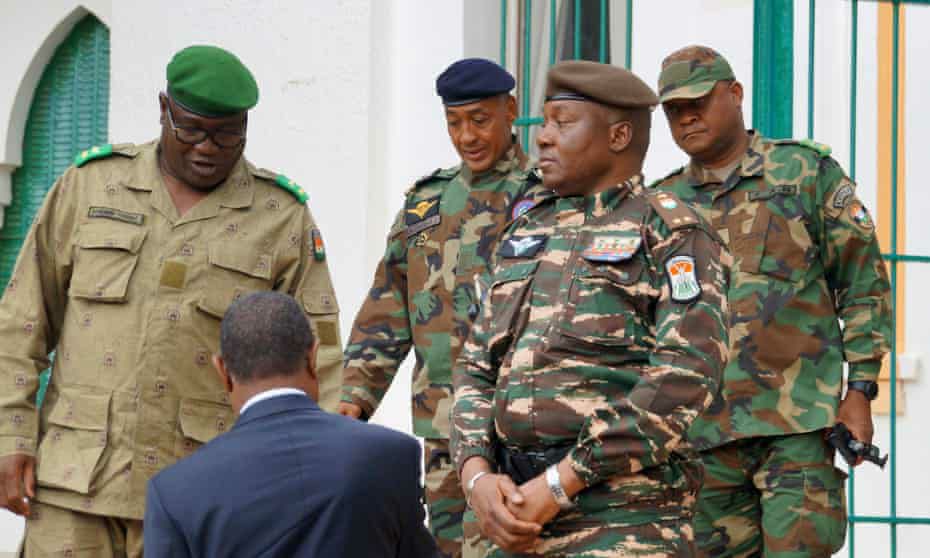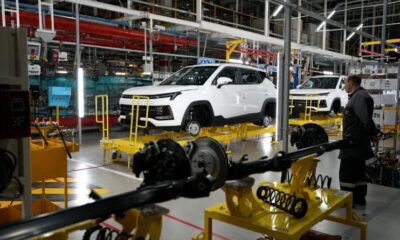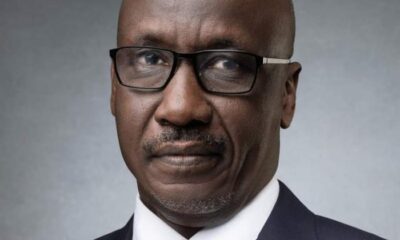Columnists
Comparing Military Adventurism With The Arab Spring -By Richard Odusanya
I will like to use this article that focuses on “Wind of change” to exhort all parties to seek —albeit exhaustible —the plethora of options for peaceful resolutions, to ensure all parties — the Military Junta, their allies and the hierarchy at the ECOWAS secretariat, both at daggers drawn —to return to the negotiating table, depleting all possibilities to avert another needless war, another excuse for wanton bloodletting. This is an avoidable proxy war at best, Africa needs investments not munitions.

Let me begin with the golden words of Kofi Atta Annan, a Ghanaian diplomat who served as the seventh secretary-general of the United Nations from 1997 to 2006. Annan profoundly posited: “The Arab spring reminds me a bit of the decolonisation process where one country gets independence and everybody else wants it. How about us, when do we get it, when do we make our move? And you have a situation where someone has been in power for decades, where the integrity of elections, democracy and security have really not been debated or discussed and most people suspect that elections are rigged and that the democratic rotation that elections are supposed to ensure doesn’t really happen. And when this goes on for a while you are sitting on a powder keg.”
Sadly, and unfortunately, African countries have had conditions common for coups, like poverty and poor economic performance. When a country has one coup, that’s often a harbinger of more coups. The Niger Republic coup is the seventh military coup in West Africa in less than 3 years and is a threat to Nigerian democracy. Niger Republic is strategic in the fight against jihadists in the Sahel of Africa. Therefore, the need to be circumspect as we consider the options available for the delicate situation of our close neighbors particularly the Niger republic sharing borders with many of our States in the Northern part of the country.
Across the Sahel, jihadist conflict that began in Mali more than a decade ago has left millions of people exposed to relentless attacks and caused one of the world’s worst humanitarian crises. Jihadists have exploited failures by governments to tackle corruption and provide inclusive governance in low-income, ethnically diverse countries. The impact of the climate crisis has added to insecurity in a region reliant on agriculture. A lack of opportunities for young and fast-growing populations, and a proliferation of weapons, are other factors.
Today, at the expiration day for the ultimatum; amid all of the sugar-coating words, amid all of the sound of warmongering, many African nations IMPOVERISHED by decades of mis-governance, and political instability characterised by military coups and counter-coups, not leaving out the military as an institution which nearly lost its reputation of professionalism, discipline and patriotism as a result of misguided adventure into politics. Like Burkina-Faso, like Chad, like Niger, like Mali, like Sudan, like Guinea Bissau and Central African Republic – certainly, the “Wind of change” is blowing across the continent of Africa. Sadly, the current situation is avoidable if we are mindful of the needful
More specifically, the African Union and ECOWAS should as a matter of necessity be at the forefront of leading peace missions (operations) in Africa. Thereby, simplifying the complexity of governance in the African continent, by activating the peer review mechanism. It is thus, imperative that rethinking the idea and original vision of the African Peer Review Mechanism (APRM) may just be the magic particularly at a time like this. Expectedly so, African Union and ECOWAS may have reacted to the situation of Niger Republic as deem necessary for the sake of unity, however the need to explore peaceful resolution should be kept open.
Flowing from the above, it has become imperative that we compare the root cause of the Arab Spring, wave of pro-democracy protests and uprisings that took place in the Middle East and North Africa beginning in 2010 and 2011, challenging some of the region’s entrenched authoritarian regimes. The wave began when protests in Tunisia and Egypt toppled their regimes in quick succession, inspiring similar attempts in other Arab countries. Is it a case of a “Wind of change” blowing across Africa? On the other hand, West Africa has recently been rocked by military uprisings. In the past three years, armed soldiers have overthrown the presidents of Mali (August 2020 and May 2021), Guinea (September 2021), and Burkina Faso (January and September 2022) and Niger Republic on the 26 July 2023. The confluence of constitutional crises in the region raises several questions. Why these three countries? Why now, in such short succession? And finally, what does the future hold for their populations, in such a situation that is uninspiring.
Additionally, With several Nigerian states sharing borders with Niger Republic, military intervention could have unintended consequences that may impact the peace and stability of both nations. Consequently, there’s a lot of feedbacks on the need to strengthen the ‘Peer review mechanism’ (APRM), and call heads of member states to order when the need arises, particularly, given the undemocratic tendencies typically characterised by issues of corruption, election rigging and sit-tight syndrome which must be discouraged. Furthermore, an advocacy of Freedom, Fair play, and Justice should replace lack of transparency, and accountability in governance currently being experienced in many of the sub-region.
In conclusion, I will like to use this article that focuses on “Wind of change” to exhort all parties to seek —albeit exhaustible —the plethora of options for peaceful resolutions, to ensure all parties — the Military Junta, their allies and the hierarchy at the ECOWAS secretariat, both at daggers drawn —to return to the negotiating table, depleting all possibilities to avert another needless war, another excuse for wanton bloodletting. This is an avoidable proxy war at best, Africa needs investments not munitions. Our people need pills, not bullets, not ration. I daresay that we’ve had too many misadventures in our checkered history as peoples of Africa.
Richard Odusanya is a Mind Restructuring Enthusiast.



















